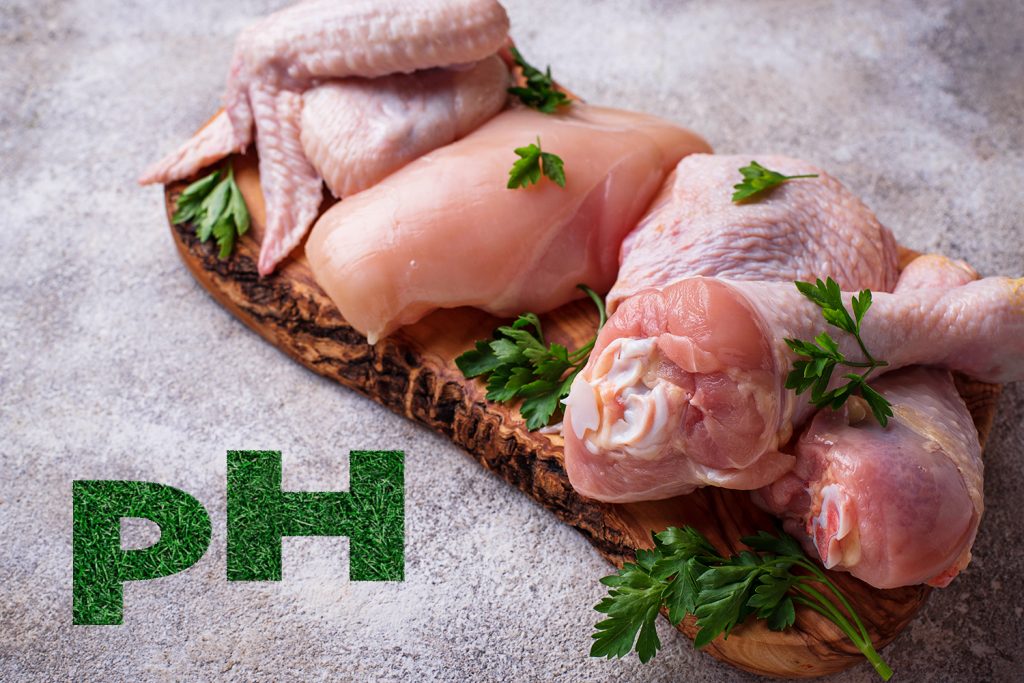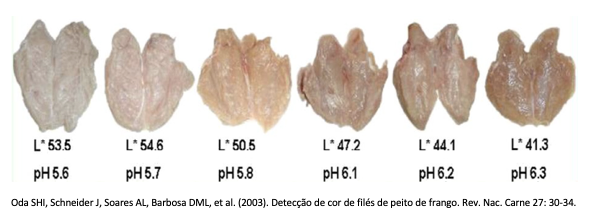IN OTHER LANGUAGES

Pale, soft and exudative meat, also called PSE meat, describes a quality defect that is characterized by paleness, abnormal consistency and low water holding capacity.
Raw PSE meat is visually unattractive to customers. During cooking, it loses more water than normal, resulting in a lower cook yield and in a hard and dry texture. Carvalho et al (2014) determined that raw turkey PSE meat had a 5.5% lower water holding capacity and after smoking it, it yielded 5-10% less and it was 31% harder. PSE meat also loses more water during thawing.
Furthermore, during industrial production of cooked meats, PSE meat releases an unacceptable amount of water in the cook-in bags, which forces the manufacturer to repackage the product and increases the production costs.
Studies carried out in USA, Canada, Brazil, England and Poland show that the incidence of PSE in chicken meat is 7-37%, while in turkey meat is 18-45%.
For all the above reasons, PSE has become an economic burden for the poultry industry.
After slaughter, anaerobic glycolysis degrades muscle glycogen, leading to the formation of lactic acid, which lowers the pH. A low pH is necessary for meat aging, as it promotes the tenderization of the meat.
However, in modern farm animals, selected for fast growth, the glycolysis takes place very fast, resulting in a rapid pH decline while the muscle temperature is warm. The combination of low pH and high temperature adversely affects muscle proteins, reducing their ability to hold water and impairing meat color, texture and functional properties.

Chicken breast color affected by pH
It is believed that the main trigger of PSE meat is stress before slaughter. Stress increases the release of calcium in the muscle, which in turn speeds up glycolysis. Stressful factors include management, transportation, mixing with other animals and heat stress before and during transport.
Supplementing with antioxidant essential oils reduces oxidative stress throughout the life of the animal, mitigates the consequences of heat stress, and cuts down losses and stress during transport.
In multiple field trials we have demonstrated that PhytoShield©, our liquid antioxidant rich in essential oils, mitigates the muscle pH drop during 24 after slaughter. Furthermore, in a trial made in autumn 2022, the group treated with PhytoShield© showed better carcass color.
Postmortem pH control is one of the mechanisms of action by which antioxidant essential oils reduce the incidence of PSE and improve meat quality and flavor.
PhytoShield© is an oral emulsion that contains essential oils, electrolytes and vitamins intended to promote growth, reduce oxidative stress, increase meat and egg quality, and keep the animals hydrated.

Certain health statements may not be applicable in your region.